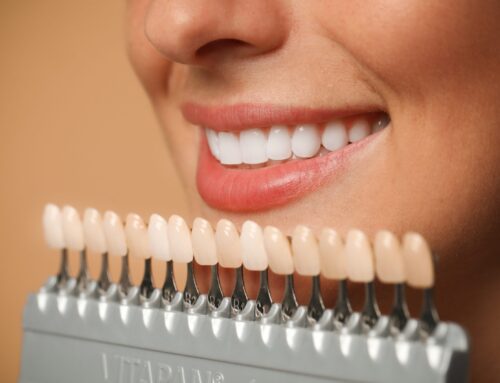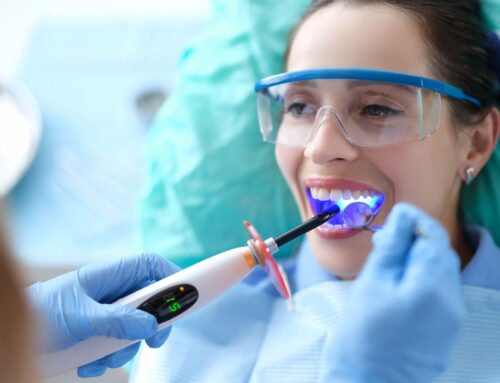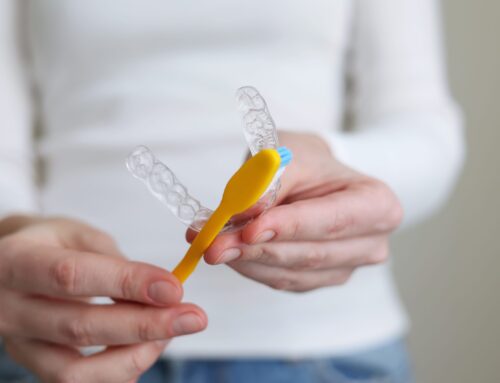If you have ever felt pain when drinking coffee or eating ice cream, you are not alone. Many people have sensitive teeth. Struggling with sensitive teeth is a common dental complaint, and it can make everyday activities uncomfortable or even painful.
Tooth sensitivity is a quick, sharp pain in your teeth. It often happens with hot, cold, sweet, or acidic foods. The sensitivity can range from mild and occasional to persistent and severe. In many cases, it’s your body’s way of telling you something deeper is happening.
Common Causes of Tooth Sensitivity
Understanding the causes of tooth sensitivity can help you take the right steps toward relief. Here are the most common culprits:
Worn Enamel
Brushing too hard or using a hard toothbrush can slowly wear away your enamel. This exposes the sensitive dentin underneath.
Gum Recession
When the gums recede, the sensitive roots below become exposed. Unlike the rest of the tooth, enamel does not protect the exposed roots.
Tooth Decay or Cavities
When the decay reaches the tooth’s nerve, it can cause sharp pain and sensitivity. This is why sensitivity is often one of the first warning signs of a cavity.
Cracked or Chipped Teeth
Even a minor fracture can allow irritants to reach the nerve inside the tooth. You might notice sensitivity when biting down, chewing, or experiencing temperature changes in your mouth.
Worn Fillings
Fillings can weaken or crack over time. These cracks can trap food and bacteria. This can cause more decay and expose the tooth’s inner layers, worsening sensitivity.
Teeth Grinding
Clenching or grinding your teeth wears down enamel and puts pressure on the nerves. This can cause micro-cracks, loosen fillings, or inflame the tooth pulp, resulting in chronic sensitivity.
Recent Dental Procedures
Whitening, fillings, or cleanings can cause temporary sensitivity as your teeth adjust. This sensitivity should be temporary, but contact your dentist if it lasts longer than a week or worsens.
Why Are My Teeth Suddenly Very Sensitive?
If your teeth suddenly become sensitive, it can be both uncomfortable and concerning. A sudden change in sensitivity can point to an underlying issue. Sudden tooth sensitivity may be a warning sign of decay, infection, or damage.
If the pain lasts more than a few days, you should schedule a dental appointment as soon as possible.
How are Sensitive Teeth Diagnosed?
Finding the cause of your sensitive teeth will help relieve your discomfort and uncover any underlying issues. In order to properly diagnose you, your dentist will need to do a full evaluation consisting of:
- A physical exam of your teeth and gums
- X-rays to detect hidden decay, cracks, or infections
- A review of your oral hygiene habits and recent dental history
How to Treat Very Sensitive Teeth
There are several methods for treating sensitive teeth, including:
- Desensitizing Toothpaste: These have ingredients like potassium nitrate to help block pain signals from the nerves inside your teeth.
- Fluoride Treatments: In-office fluoride can help strengthen enamel and reduce discomfort.
- Dental Bonding or Sealants: These can cover exposed root surfaces and protect sensitive areas.
- Nightguards: Custom mouthguards prevent damage from teeth grinding and reduce stress on teeth.
- Gum Grafting: This procedure covers exposed roots and reduces sensitivity for advanced gum recession.
- Restorative Treatments: If your sensitivity stems from decay or damage, a filling, crown, or root canal may be necessary.
Preventing Tooth Sensitivity
You can avoid sensitive teeth and prevent them from causing discomfort. These tips can help you maintain healthy teeth and minimize your risk of sensitivity:
- Brush with a soft-bristled toothbrush and use gentle pressure
- Avoid acidic foods and drinks that erode enamel
- Don’t skip flossing, which helps protect against gum disease and recession
- Visit your dentist regularly for cleanings and check-ups
Get Relief From Sensitive Teeth
You don’t need to suffer from sensitive teeth. Even mild cases can have you thinking twice before accepting that hot or cold treat. The good news is that very sensitive teeth can be treated by dental professionals.
At Premier Cosmetic & Family Dentistry, we’re here to help you regain comfort and confidence in your smile. Let us take the guesswork out of tooth sensitivity so you can enjoy the foods and drinks you love pain-free.






